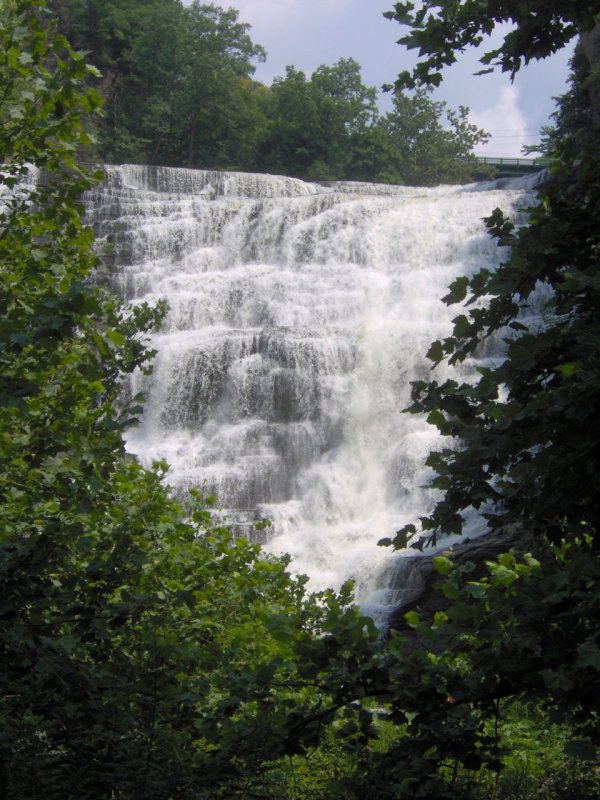Open Letter to Friends of Dorothy Reddington
"Cornell is a great institution that would be even greater if it realized that it does not need another parking lot." –Dorothy Reddington
Dear Friends of Dorothy,
As you know, Dodo was a person of great accomplishments, unbounded enthusiasm, and total devotion to the people and places she loved. One of these places was Redbud Woods.
Today, the future of this beloved native woodland is extremely precarious; the bulldozers may start rolling within the next few weeks....Click permalink for the full letter...
As many of you know, Cornell University plans to raze Redbud Woods to construct a student parking lot. This lot will provide 176 parking spaces, covering an area about the size of two football fields.
The woods are in the historic backyard of famed Ithaca conservationist Robert Treman, who donated the land that is now Treman Park. Redbud Woods is home to diverse species of plants and animals, including locally rare yellow oak and hackberry trees, which provide winter hibernation habitat for butterflies that feed exclusively on hackberries. The area also provides a buffer between the University Hill neighborhood and the Cornell campus, and has been designated a Historic District by the City of Ithaca.
Last spring, the City of Ithaca Planning Board denied Cornell permission to build the lot, and offered six months to reach a mutual agreement with the city. Instead, Cornell opted to sue the Planning Board. The State Supreme Court judge ruled in Cornell's favor, undermining the board's ability to make local planning decisions and highlighting the problems with Cornell's lack of sustainable transportation policies. Proposed alternatives to razing Redbud Woods include providing underground parking, expanding or making better use of pre-existing lots, and implementing frequent, accessible public transportation and shuttles to satellite parking lots.
Nearly 40 Cornell faculty and scientists, including Dr. Thomas Eisner and Carl Leopold, stated in a letter to Cornell President Jeffrey Lehman: “…we feel that it would be ill-conceived to remedy this [parking] problem by destroying a strategically-placed patch of greenery, whose combined environmental, aesthetic, and historical value well exceeds any benefit that could accrue from its transformation.” More recently, 90 faculty requested a six-month moratorium on constructing the parking lot so that the community dialog could be continued, and a more elegant and sustainable solution to the parking dilemma found. Several days ago, that request was denied.
A number of Cornell students, including Dodo’s friend Danny Pearlstein, are members of the Redbud Woods Working Group, affectionately known as the “Redbuddies.” They have been putting themselves on the line to preserve the woods, and now face delayed graduation, fines, and court dates for their actions. But this hasn’t stopped them. They would like to dedicate Redbud Woods to Dodo. (Hey, Reddington Redbuds has a nice ring to it!) They are trying to outreach to the community, alumni, and to the media, and they can use all the help they can get.
What You Can Do
- Please contact every Cornell alumni you know, particularly those in other states, and ask them to send e-mails and letters to Cornell President Jeffrey Lehman (president@cornell.edu) at 300 Day Hall, Cornell University, Ithaca, NY 14853.
- Please e-mail or send a letter (250 words or less) to the editor of the Ithaca Journal (ith-letters@ithaca.gannett.com) at 123 W. State St., Ithaca, NY 14850. Your address and phone numbers must be included for verification.
- Join the Redbuddies at their upcoming activities: a “counter-convocation” between Cornell’s Uris and Statler Halls at 11am on Saturday, May 28th; a work, play, and planning session in Redbud Woods at 3PM on Monday, May 30th; and at the Ithaca Festival parade, marching together with the Catholic Worker group at 7pm on Thursday, June 2nd. Contact Danny Pearlstein (dp89@cornell.edu) for more information.
- To find out more about the history of this issue, visit the website: http://www.rso.cornell.edu/snrc/redbud
- Visit Redbud Woods soon, while it is still in bloom, and think of Dodo as you stand quietly amid a sea of purple blossoms and bird song. Redbud Woods is located at University Avenue, west of Stewart Ave.
If Dodo were still with us, she would insist that President Lehman’s “institutional commitment to sustainability” be more that just lip service. She would want Cornell to preserve its ecological treasures, rather than to precipitate their destruction. And she’d be passionately debating all of the above over a glass of good wine. Let’s do it for her! Permalink 11:01 AM













